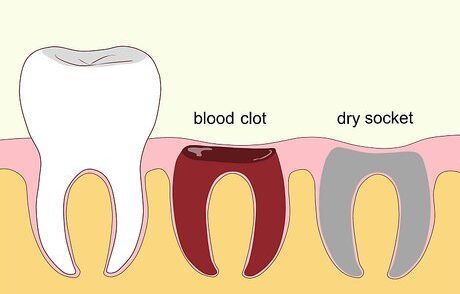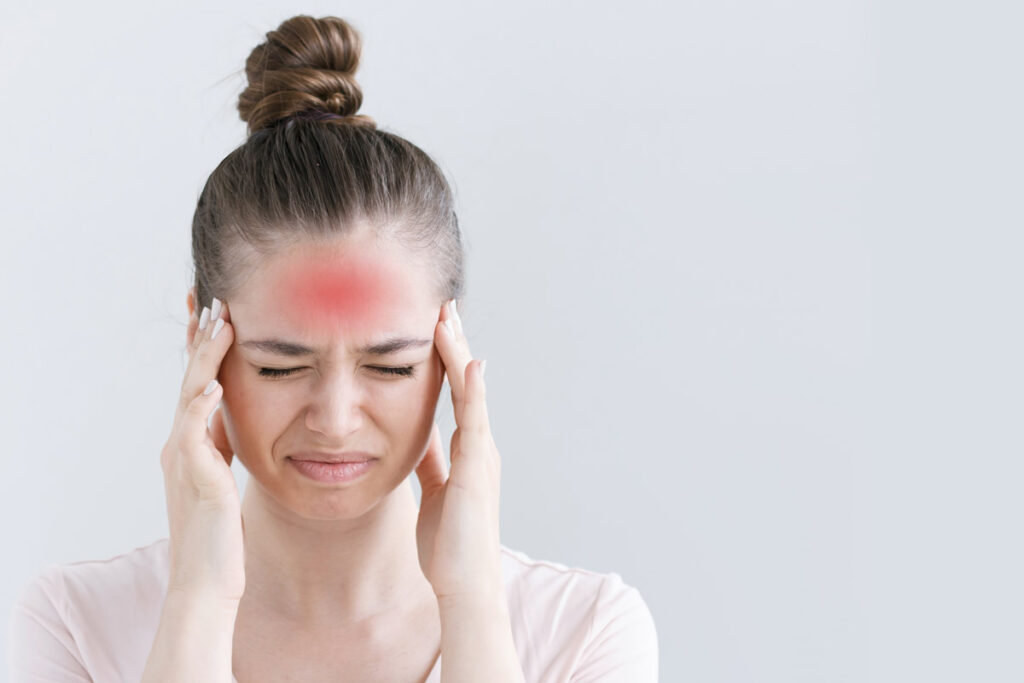Undergoing wisdom teeth removal is a common dental procedure that millions of young adults undergo each year. While the extraction of the wisdom teeth, which are the last set of teeth to grow, may seem straightforward, it is not uncommon to experience pain and discomfort following the surgery.
One such post-operative discomfort is a headache. In fact, experiencing headaches after wisdom teeth removal is more common than you might think and you should not worry much about it. The degree of headache can range from mild to severe and can last for days or even weeks after the procedure.
In the rest of this article, we will explore the possible cause of headache after wisdom teeth removal, as well as the treatments and preventive measures that you can take to ensure a fuss-free covery. Whether you’re facing this issue yourself or seeking information for a loved one, you’ll find helpful insights and tips for managing postoperative headaches.
What Is the Cause of Headache After Wisdom Teeth Removal?
There are several possible reasons why you may be experiencing a headache, and the combination of these factors can affect the severity of the symptom.
Firstly, it may be due to the narcotics that was administered to you post-surgery as a pain reliever. Sometimes, doctors would prescribe opioids or narcotic-based pain relievers to treat any pain or discomfort that you may be experiencing after the surgery. However, these prescription drugs may lead to addiction and overdose among patients who consume it for an extended period to treat chronic pain. In the short term, patients may suffer from negative side effects such as confusion, nausea, sleepiness, sweating, and headache.
Secondly, the stress and anxiety associated with the procedure and the recovery process can lead to tension headaches. Emotional stress can cause muscle tension in the neck, shoulders, and head, which can result in a headache.
Thirdly, the headache may be due to a dry socket. Dry socket is a painful medical complication that happens when the blood clot fails to clot properly or is dislodged from the cavity where the wisdom tooth was removed. When this occurs, the underlying bones and nerves are exposed to the elements and are easily irritated by a stimuli such as heat or cold. Dry socket can cause severe pain, bad breath, an unpleasant taste in the mouth, and headache.

Fourthly, the headache that you are experiencing immediately after the surgery may be due to the anesthesia. While it is uncommon for people who had local anaesthesia to experience headache, fatigue or pain, it still happen to a small percentage of patients who react negatively to the anesthesia.
Fifthly, it may be signs of an infection. During an infection, inflammation occurs in the affected gum area, triggering the release of pain-causing signals which leads to headache. You may also experience other symptoms such as nausea, fever, sensitivity to light and sound, and extreme pain around the infected area. If not treated in time, the infection may progress to other parts of the gum and trigger life-threatening health risks.
You may be interested in: What Are The Benefits Of Keeping Wisdom Teeth?
Last but not least, the headache may be due to temporomandibular joint (TMJ) disorders, which is caused by the removal of the wisdom teeth. The temporomandibular joint is the joint that connects the lower jaw to your skull. In general, any situations or conditions that prevents the jaw joint from functioning well can be considered as a TMJ disorder. TMJ can be caused by different behaviors including trauma, a blow to the joint area, an improper bite, and general wear and tear. In fact, a 2014 study revealed that out of the 801 participants, 27% of them reported TMJ disorders after their wisdom teeth removal. When TMJ occurs, individuals will suffer from a range of symptoms including pain in the jaw, difficulty chewing, limitations in the opening and closing of the mouth, and headache.
How to Treat the Headache?
There are several ways to relieve the throbbing headache you are experience after wisdom teeth removal:
- Use over-the-counter pain relievers: Instead of using opioids to manage pain, opt for over-the-counter pain relievers such as ibuprofen (advil) or acetaminophen (tylenol) to relieve the pain. These pain relievers are not addictive and carry less risks of negative side effects than opioids. e sure to follow the dosing instructions on the package. Note that aspirin should be avoided after oral surgery, as it may increase the risk of bleeding.
- Apply ice or heat compress: Applying a cold compress to the affected area for 10 to 15 minutes at a time, twice a day. This can help toreduce swelling, inflammation, and pain, including the headache. You can also try a warm compress for a similar effect.
- Stay hydrated: Drink plenty of water to help keep headaches at bay. In fact, dehydration is a leading cause of chronic headache.
- Get adequate rest: Get plenty of rest and avoid strenuous activity for the first few days after your surgery. This will improve the quality of the recovery process and reduce the likelihood of headaches.
- Massage your temples: Gently massage your temples and neck to relieve tension and discomfort.
- Go on a soft diet: Stick to a soft or liquid diet for the first few days after surgery. Avoid hard or chewy foods that require excessive jaw movement, as this can exacerbate pain and headaches.
It is important to know that the headaches are usually temporary and subside as the body heals. Most post-operative headaches resolve within a few days to a week.
If your headache persists or becomes more intense, it important to contact your dentist or oral surgeon for a further evaluation. In rare cases, headaches can be a sign of a more serious issue; seek medical attention immediately if you experience any unusual symptoms.
How to Prevent the Headache?
While it may not be possible to completely prevent headaches after wisdom teeth removal, there are several steps you can take to reduce the likelihood of experiencing them:
- Follow your dentist’s instructions: It is essential to carefully follow the post-operative instructions provided by your dentist or oral surgeon. These instructions often include guidelines on managing pain, swelling, and other potential complications. By adhering to these instructions, you can promote proper healing and reduce the risk of headaches.
- Avoid caffeine and alcohol: Both caffeine and alcohol can contribute to headaches and should be avoided.
- Avoid triggers: Identify any triggers that may worsen your headache, such as certain foods, bright lights, loud noises, or strong odors. Avoiding these triggers can help minimize headache symptoms.
- Manage stress: Prioritize stress reduction techniques both before and after the surgery. Engaging in relaxation exercises, such as deep breathing, meditation, or gentle stretching, can help lower stress levels and potentially reduce the likelihood of experiencing a post-operative headache.
- Avoid Tobacco and Alcohol: Refrain from using tobacco products and consuming alcohol during the recovery period, as they can delay healing and increase the risk of complications such as headache.
- Minimize physical strain: Avoid strenuous activities, heavy lifting, or any activities that put excessive strain on your body during the initial recovery period. Physical exertion can increase the likelihood of headaches, so it’s important to rest and allow your body to heal.
Remember, everyone’s experience with wisdom teeth removal and recovery is different. While these prevention tips can help reduce the likelihood of a post-operative headache, it’s important to consult your dental professional for personalized advice based on your unique circumstances.
Takeaway
To conclude, some individuals breeze through the recovery process without any complications, while others may experience a range of symptoms, including headaches.
While it may be an uncomfortable side effect, it’s important to remember that it is usually temporary and can be managed effectively. Understanding the potential causes of post-operative headaches and implementing appropriate remedies can significantly alleviate discomfort and promote a smoother recovery process. Additionally, taking preventative measures can help minimize the likelihood of developing a post-operative headache.
We hope that this article has provided useful insights and practical advice for anyone dealing with headaches after wisdom teeth removal. Remember, everyone’s experience is unique, and this information is meant to supplement and not replace the advice of your dental professional.








